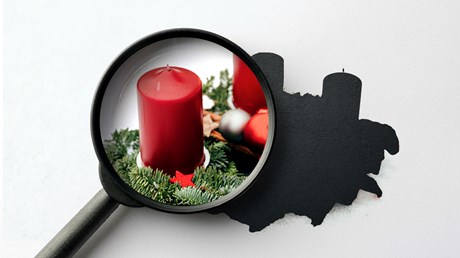Christian leaders from Brazil, Colombia, France, and the Philippines weigh in on mistaken beliefs about the season.

For liturgy-loving Christians, Advent is a season of anticipation, marked by a posture of hopeful and expectant waiting.
But for many evangelicals, it may pass by almost unnoticed and unobserved, whether due to an unfamiliarity with the church’s liturgical calendar or a cynicism toward Catholic practices.
Advent means “arrival” or “appearing” and comes from the Latin word adventus. Each year, the season begins four Sundays before Christmas and lasts until December 25. It is divided into a period that focuses on Christ’s second coming and another that focuses on his birth. (Orthodox Christians observe a similar event, the Nativity Fast, from November 15 to December 24 before the Nativity Feast on December 25.)
Advent began in fourth- and fifth-century Gaul and Spain as a season intended to prepare believers’ hearts for Epiphany (January 6), not Christmas. Epiphany is a day to commemorate the Magi’s visit after Jesus’ birth (in the West) or Jesus’ baptism in the Jordan River (in the East).
Today, Advent customs may include reading and praying through an Advent devotional and lighting one of four candles inside an Advent wreath each Sunday, corresponding to four weekly themes: hope, love, joy, and peace. Most wreaths also include a centrally placed candle to symbolize Jesus, the Light of the World.
Yet, in parts of the Majority World and in countries where Catholicism is the dominant religion, evangelicals do not typically observe Advent.
French evangelical churches ignore Advent as part of “a gut reaction against anything that is liturgical, because it smacks of Catholicism,” said Gordon Margery, a Baptist lecturer at the Nogent-sur-Marne ...
from Christianity Today Magazine
Umn ministry


.gif)

.gif)
.gif)
